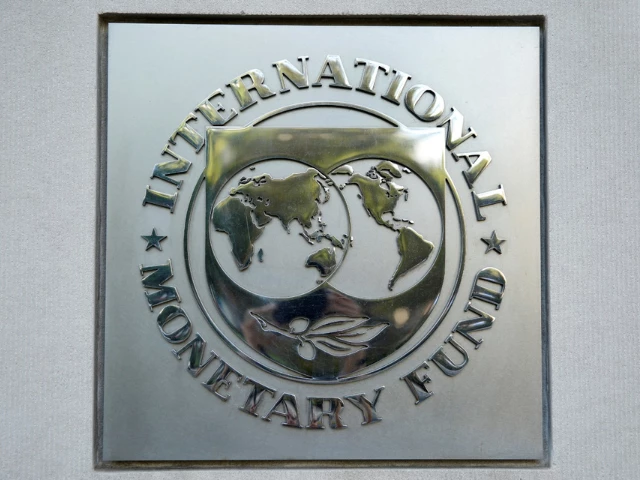IMF official visits amid budget talks
Trip comes as govt, global lender negotiate tax targets, defence spending, and relief for salaried class ahead of new

The International Monetary Fund (IMF)'s regional director, Jihad Azour, is visiting Pakistan this week in the middle of negotiations for approval of the new budget, as both sides are taking time to converge on key issues of increasing taxes and rationalising expenses.
Government sources told The Express Tribune that Jihad Azour, the IMF's Director for the Middle East and Central Asia, would also meet Prime Minister Shehbaz Sharif during his visit this week. Azour will also hold discussions with Finance Minister Muhammad Aurangzeb.
The regional director is visiting Pakistan 10 days after the approval of the second loan tranche of the $7 billion programme, despite opposition from India. Azour's visit is a testimony to smooth relations between the lender and the borrower, despite New Delhi's negative campaign.
Both the Ministry of Finance and the IMF resident representative remained tight-lipped about the purpose of the visit at a time when the IMF staff is already in Pakistan to reach an agreement on the new budget for fiscal year 2025-26.
One senior government functionary said the government would take up some outstanding budget-related issues with the IMF director, particularly regarding major spending items. The IMF has imposed a new condition on Pakistan that the government must secure parliamentary approval of the new budget in line with the IMF staff agreement to meet programme targets. This leaves little space for the government to implement its own agenda, although PM Sharif wants to provide relief to the salaried class.
The sources said the tax target, defence spending, and some grant-related issues were being discussed. The federal government has decided to allocate nearly Rs2.504 trillion for defence spending in the next fiscal year, which is 18% higher than this year's allocation. However, the IMF's staff-level report released on Saturday showed defence spending at Rs2.414 trillion, an increase of 12%. Some grants and subsidy allocations have also not yet been finalised.
The Federal Board of Revenue (FBR) on Monday presented the taxation proposals for the next fiscal year to the prime minister. The PM was also briefed that the FBR's tax target may be around Rs14.07 trillion, which is roughly Rs240 billion less than the earlier mutually agreed target between the IMF and the government for fiscal year 2025-26, they added.
However, there is a possibility that the government may substantially increase petroleum levy rates in the Finance Bill 2025. The IMF has projected petroleum levy collection at over Rs1.3 trillion for the next fiscal year, which could become the single largest non-tax revenue source if the government starts charging Rs100 per litre levy on petrol and diesel. The current rate is Rs78 per litre.
The finance ministry will have to find space to adjust the Rs240 billion reduction in the earlier agreed target if the petroleum levy is not immediately increased to Rs100 per litre in the budget. For the outgoing fiscal year, the FBR's tax target has further dropped to Rs12.16 trillion after economic growth remained below the government's conservative estimates.
The sources said the PM termed the proposed relief in income tax for the salaried class and the cut in super tax rates as insufficient. He directed tax authorities to provide significant respite to salaried individuals in consultation with the IMF.
The sources said the PM stated in the meeting that providing relief to the salaried class was his top priority. Salaried individuals paid a whopping Rs437 billion in taxes in just 10 months of this fiscal year, which was Rs150 billion higher than the previous record. The FBR's claims before the prime minister and the IMF that it would compensate for the shortfall in taxes through enforcement measures and by settling litigation cases have proven incorrect. This has created a trust issue between the IMF and the FBR, said the sources.
In addition to the standard 29% income tax from the corporate sector, the government also charges a 10% super tax, which might be reduced in phases.
The FBR's single biggest failure was its inability to collect the IMF-set target of Rs36.7 billion from traders in nine months under the Tajir Dost Scheme. The IMF report revealed that collections were less than Rs4 million during the first half. For the next fiscal year, the IMF has dropped the Tajir Dost Scheme and proposed a new target, which may shift the focus away from retailers. The IMF and the government have agreed to collect a cumulative Rs531 billion in taxes from retailers in the next fiscal year, including other applicable taxes.





















COMMENTS
Comments are moderated and generally will be posted if they are on-topic and not abusive.
For more information, please see our Comments FAQ